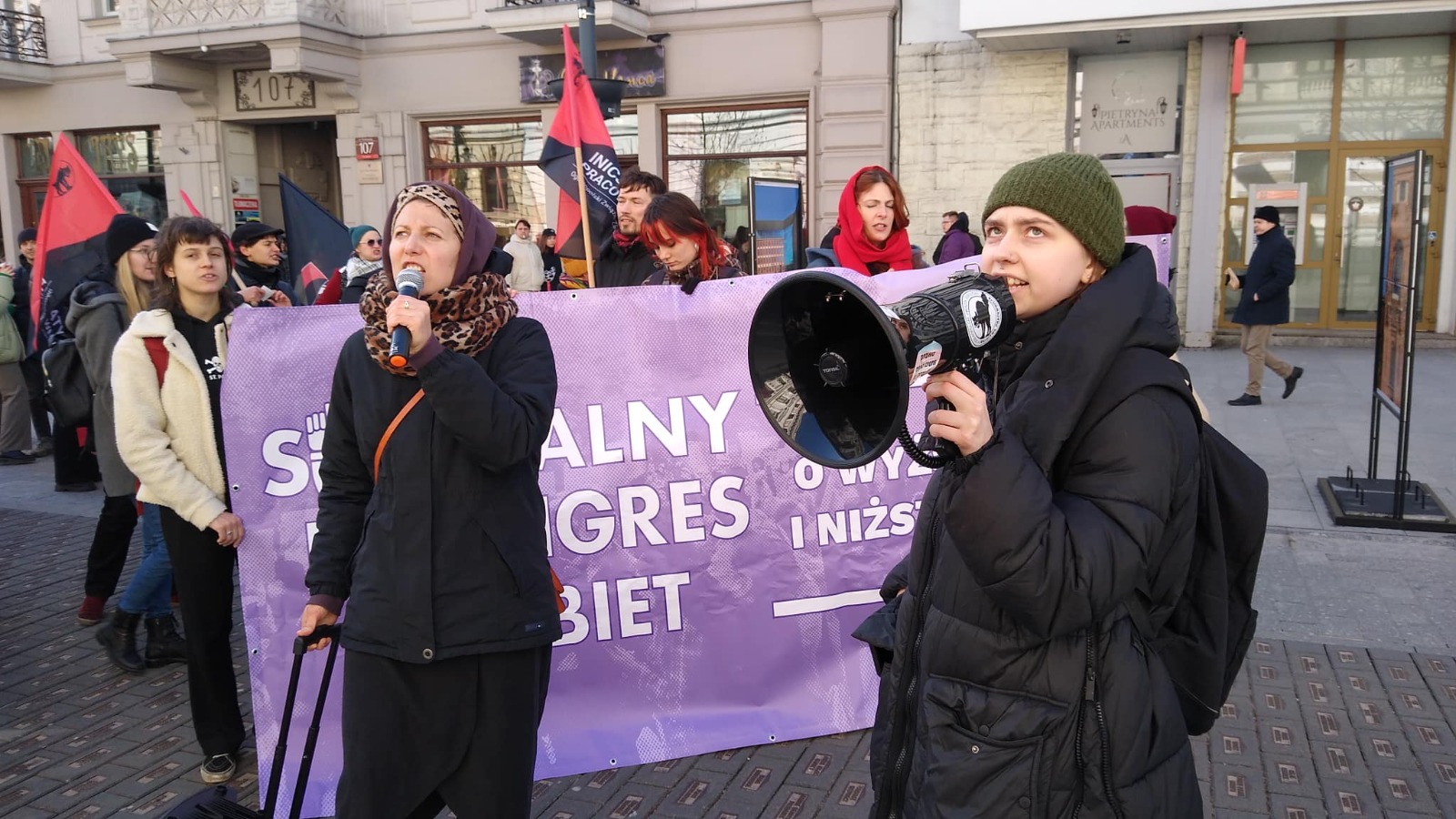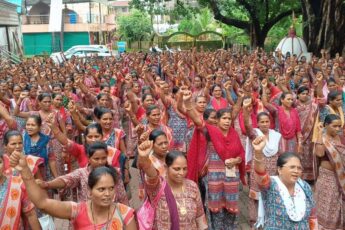
Aleksandra Taran (Workers’ Initiative, Poland)
The Polish feminist movement was struck by another death of a pregnant woman linked to the de facto abortion ban. On the 24th of May, in the night, Dorota died of sepsis. She was 33 years old and 20 weeks pregnant.
Yet there are still more questions than answers in this case. It is still unclear when exactly the foetus died and when the doctors determined Dorota had sepsis. From a statement from her family, we know that Dorota was admitted to the hospital on Sunday 21 May due to premature discharge of foetal waters and that she had no other medical conditions. Some of the information provided by the family has been confirmed by the prosecution. Indeed, the autopsy showed that the cause of death was septic shock, the last stage in the development of sepsis, which caused cardiopulmonary failure.
However, hospital director Marek Wierzba claims that it was a pregnancy with underlying complications. Furthermore, there are doubts about his words, as he told the media after Dorota’s death that the patient “was monitored” and “for some reason, the patient’s condition deteriorated rapidly. First the foetus died and then measures were taken to save the patient’s life. They, unfortunately, ended in failure”. The question arises – did the doctors wait for the foetus to die after the waters had gone? Was Dorota’s life a secondary concern?
This is not the first death of a pregnant woman in Poland after the abortion ban was introduced. It is also not the first death related to the foetocentric approach of the doctors and the law in life-threatening cases such as this one. Less than two years ago, 30-year-old Iza died in Pszczyna. She was admitted to the hospital in the 22nd week of pregnancy due to amniotic fluid leakage. Doctors confirmed the previously diagnosed congenital malformations of the fetus and amenorrhoea, but despite the woman’s deteriorating well-being, they decided not to terminate the pregnancy but waited for the fetus to die spontaneously. After being admitted to the hospital, Iza passed on to her mother that there was nothing the doctors could do as long as the foetus’ heart was beating.
“For now, thanks to the abortion law, I have to lie down. And there is nothing they can do. They will wait until it dies or something starts, and if it doesn’t, I can expect sepsis. They can’t speed things up. Either the heart has to stop beating or something has to start” – she typed. Less than 24 hours later, she died of septic shock.
Another young pregnant woman dies in Poland because of anti-women laws. The Constitutional Court’s 2020 ruling effectively banning abortion rights has reduced women to the role of incubators and turned medicine into an even bigger ideological battlefield.
The abortion self-help practised by Polish women is unfortunately not enough in the face of brutal legislation. Until we succeed in fighting for abortion in Poland to be legal, accessible and free, more women will continue to die – in hospitals, at home and in the streets. Sentenced by the very fact of their own pregnancy, the “protection” of which is more important than a woman’s life.
As The Workers’ Initiative, we strongly resist the actions of those in power who use the law and the Constitution to deny our freedoms, our right to self-determination and to act in accordance with our conscience. Politicians, by banning abortion, are degrading the position of working people, regardless of their gender. Access to abortion is not just a ‘women’s issue’, but a field of struggle against exploitation waged by women and men. On a daily basis, we organise in the workplace – we fight for higher wages, safe working conditions, reduced working hours and access to the supports that allow us to live with dignity and care for others. Care – whether provided in the workplace or at home – is the most important work in society, although it is completely undervalued in the economy. Sick we cannot work, sick we cannot care. Any work requires protecting our health, including our reproductive health. And our health and wellbeing depend on whether we have access to universal, safe and free abortion. This is why abortion is integral to our struggle and our trade union action. Just as we fight for parental leave or increased funding in company welfare funds, we also fight for access to abortion. The trade union fight is a fight to take back control of our lives, and abortion is part of our lives and access to it determines how much control and freedom we have.
Only in the struggle will we reclaim access to health care and social services, including sex education, prenatal screening, contraception and access to abortion! Only in the struggle will we regain control over our lives and health, over our fertility! Not one more dead pregnant woman due to the reduction of women to an object and the fanatical drive of a narrow ruling class! Not one more!





